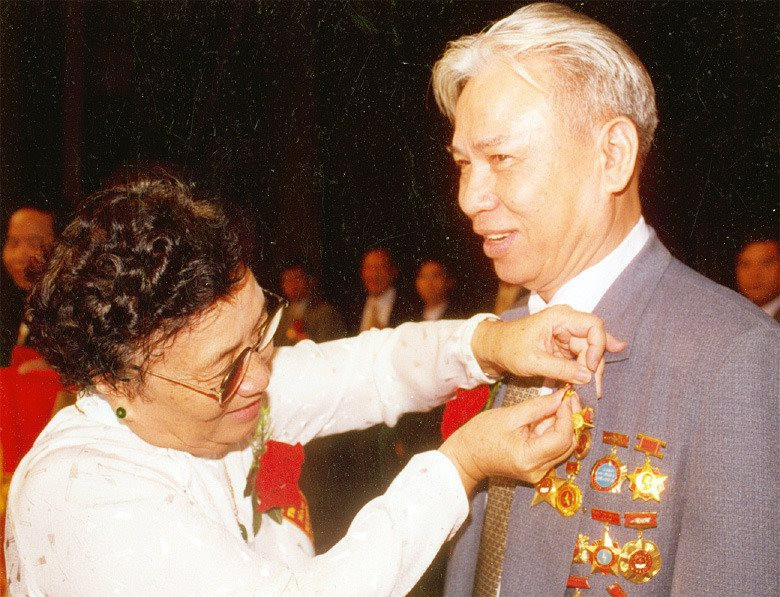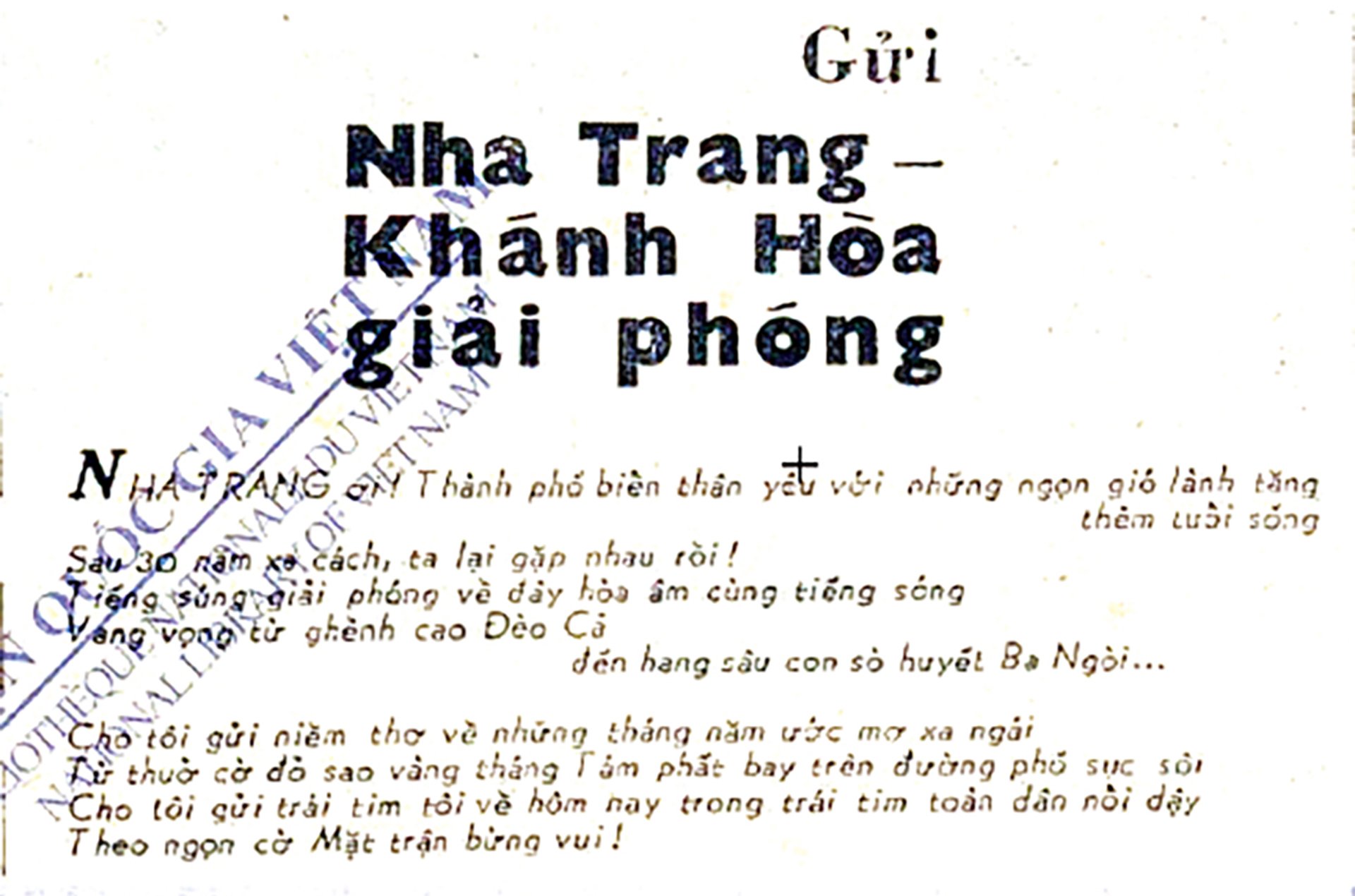Mr. Dang Van Than, former Director General of the General Department of Posts - the man who revolutionized the transition from Analog to Digital to create a breakthrough development for the Postal industry, passed away at 9:37 p.m. on May 24.

Mr. Dang Van Than (Mr. Ba Than) is a person with a particularly important role - the "commander" of the industry with a vision for digital technology - who has made the Postal sector a pioneer in the country's innovation. With his contributions to the Postal sector, in August 2000, he was awarded the title of Hero of Labor in the Renovation Period by the Party and State. In April 2012, he was awarded the First Class Independence Medal by the State.
Mr. Dang Van Than was born in 1932, in Giong Trom district, Ben Tre province. In 1950, he volunteered to join the army, working as a journalist at an information unit in Military Region 9. After the Geneva Agreement, he gathered in the North, transferred to work at the Sin Ho Post Office, Lai Chau province. After that, he was sent to study at university in Khac-cop, the former Soviet Union. In 1966, after graduating from university and returning to the country, he worked at the Institute of Postal Science and Technology under the General Department of Posts. On the day the country was reunified, Mr. Dang Van Than took over the entire postal and telecommunications system of the Saigon government.
In 1984, Mr. Dang Van Than was transferred to Hanoi to hold the position of General Director of the General Department of Posts. This was also the period when the country began its renovation. The postal service was one of the poorest and most backward sectors in Vietnam at that time, many officials had left for other places. Revenue mainly came from newspaper distribution services and stamp sales. In difficult circumstances, General Director Dang Van Than made a bold decision to make a revolution straight into modern technology. Specifically, switching from Analog to Digital, taking international telecommunications development as a breakthrough, implementing a series of other strong measures to create capital, resources and facilities, gradually escaping the US embargo.
Mr. Mai Liem Truc, former General Director of the General Department of Posts, recalled that at that time, Vietnam was in a serious and comprehensive crisis, partly due to the consequences of the brutal war, partly due to the consequences of the centralized, bureaucratic, subsidized economy. Coming out of the war, ten thousand soldiers in the postal service, courier, radio, wireman, mechanic... had sacrificed. The total number of telephone subscribers was only approximately 100,000, of which Hanoi had about 10,000 subscribers, Ho Chi Minh City had about 30,000 subscribers. The small telecommunications network used completely Analog technology. The lives of cadres, workers and employees in the industry faced many difficulties. The country was not only embargoed economically but also embargoed in technology, telecommunications, Vietnam's code 84 was locked...
“The wind of innovative thinking, speaking frankly and honestly, has come to the Vietnam Post industry. From workers to leaders, everyone has absorbed it and applied it very creatively into practical development with dedication, daring to think and dare to do. I would like to emphasize the former General Director of the General Department of Posts Dang Van Than, who has made great contributions to this innovative thinking,” Mr. Mai Liem Truc recounted.
At that time, there were many obstacles such as lack of money because the whole industry could not even have 1 million USD. While the Analog network in Vietnam was still modern compared to socialist countries, at the right time there was no investment capital but instead they had to buy new equipment, so many people were worried.
Overcoming many opinions that Vietnam is still poor and has no money to invest, while it can take advantage of the German-transferred Analog switchboard system, Director General of the General Department of Posts Dang Van Than "pressed the button" to choose Digital, determined to go straight to modernization. Later, history proved that Mr. Dang Van Than's views and vision were correct, creating a revolution in the Postal industry.
Mr. Dang Van Than and the leadership discussed and reached a high determination on self-reliance, researched and implemented many clever and creative measures to "take the outside to feed the inside" to circumvent the US embargo, attract foreign currency and high technology from abroad to invest in development and training of human resources. Especially, breaking away from the mindset of relying on, waiting for superiors, waiting for state investment. In addition, the industry determined to take international telecommunications as a breakthrough in development, taking advantage of ODA aid and proposing a number of mechanisms to quickly generate capital from foreign loans guaranteed by the state and paid by the industry itself.
An important fact is that Vietnam's telecommunications network is very small at the moment, so if we switch to digital technology early, we will avoid a transition period, and overnight we can change the entire switchboard from Analog to Digital technology because of the advantage of being a latecomer. On the contrary, many countries have difficulty converting because their telecommunications network has tens of millions of subscribers. This is a strategic decision, because at that time, up to 98% of the world's fixed telephone network was using Analog technology, only a few countries started to switch from Analog to Digital.
Mr. Mai Liem Truc recalled: “ Some people asked: The Postal Service industry uses Analog technology, now switching to Digital technology, who will manage it, and where will the money to hire foreign experts come from... Some newspapers were skeptical when they saw the industry importing all kinds of expensive telecommunications equipment from different companies. A Minister of Post from a close socialist country also raised the question: “You are really risky, you are under embargo, the cost of equipment is expensive, how can you have high technology?” Later, when the Postal Service borrowed money from abroad to invest, at times borrowing up to 400 million USD, many people wondered if they would be able to repay the debt or go bankrupt... ”.
Doubts were raised repeatedly that, in the absence of any State investment capital, the Postal Service had to borrow and pay itself, taking advantage of all resources and opportunities for cooperation with foreign countries to build the telecommunications industry. However, by 1995, Vietnam's telecommunications network had been completely digitized to all provinces and cities with transmission, switching, and automatic switchboard systems (while the world had digitized less than 50% of its network). In terms of technology, our telecommunications network was modern and on par with other countries in the region.
From 1994-1995, Vietnam decided to go straight into digital mobile telecommunications technology (GSM) and created a boom in mobile information services, bringing this service to all Vietnamese people.
Source


![[Photo] General Secretary To Lam receives King Philippe of Belgium](https://vstatic.vietnam.vn/vietnam/resource/IMAGE/2025/4/1/e5963137a0c9428dabb93bdb34b86d7c)
![[Photo] Close-up of Vietnam's sniffer dog team searching for earthquake victims in Myanmar](https://vstatic.vietnam.vn/vietnam/resource/IMAGE/2025/4/1/d4949a0510ba40af93a15359b5450df2)
![[Photo] President Luong Cuong and King Philippe of Belgium visit Thang Long Imperial Citadel](https://vstatic.vietnam.vn/vietnam/resource/IMAGE/2025/4/1/cb080a6652f84a1291edc3d2ee50f631)
![[Photo] Prime Minister Pham Minh Chinh meets with King Philippe of Belgium](https://vstatic.vietnam.vn/vietnam/resource/IMAGE/2025/4/1/be2f9ad3b17843b9b8f8dee6f2d227e7)


















![[Photo] Myanmar's capital in disarray after the great earthquake](https://vstatic.vietnam.vn/vietnam/resource/IMAGE/2025/4/1/7719e43b61ba40f3ac17f5c3c1f03720)
































































Comment (0)